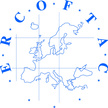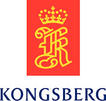ERCOFTAC Oil & Gas : Modelling & Simulation
Best Practices & Technology Trends
20-21 April 2016, Kongsberg, Oslo, Norway
Coordinator: Per Kjellgren, Kongsberg Digital




A KONGSBERG-ANSYS SPONSORED EVENT
(function(i,s,o,g,r,a,m){i['GoogleAnalyticsObject']=r;i[r]=i[r]||function(){ (i[r].q=i[r].q||[]).push(arguments)},i[r].l=1*new Date();a=s.createElement(o), m=s.getElementsByTagName(o)[0];a.async=1;a.src=g;m.parentNode.insertBefore(a,m) })(window,document,'script','https://www.google-analytics.com/analytics.js','ga');
ga('create', 'UA-84011312-1', 'auto'); ga('send', 'pageview');
Background:
This 2016 seminar comes in a period where oil prices have been on the decline since June 2014, due to several factors, fromthe impact of Shale gas, economic slump in major emerging markets, to excess availability of low cost oil out of the Middle East. The aforementioned, imply the oil price will remain in a band, governed by an upper limit -Shale gas, and a lower limit- Middle East oil. Critically, this price band impacts strongly the producers and subsequently solution providers, with a particular view to Deepwater operations, resulting in major delays and push out development times, for new discoveries. However, when considering Subsea tiebacks, it should still support an economically viable position in marginal and mature fields.Still, the industry as a whole has to navigate from current conditions.Therefore, our aim, here, is to technologically navigate practicable advances,in this energy sector, with a view to sustainable and viable operations.
Thus, this particular energy sector has to re-think its approach, if it is to weather the status-quo, and lest we forget the carbon footprint, and the growing competitive technology march from renewables. This is where digitisation of the entire upstream-downstream process can lead to significant improvement in revenues , cash-flows least of all operational excellence. Critically, CFD-FEM has a huge role and opportunity to play in that system, in further alleviating CAPEX and OPEX economics, in attaining a balanced technology portfolio, leading to the rapid deployment of proven cutting-edge technologies, from R&D to the operational environment.
Thus, the seminar will focus on matters pertaining to recent advances in:
Multi-phase Flows, Subsea Operations, Real-Time Simulations, Risk Analysis and Safety , and Machine Design (tbc).
In addition, a round table discussion will take place on the afternoon of 21st, to discuss the delivery of an ERCOFTAC Bulletin – O&G Theme, Sep 2017.
Keynote Speaker: Prof. Stein Tore Johansen, SINTEF & NTNU
Latest talk set
| Keynote Speaker : Prof. Stein T Johansen, SINTEF, NTNU, Norway Resolving the O&G flow assurance challanges:Useful simulations of system evolution- the need for a pragmmatic multi-level modelling approach
|
|
|
| Dr. Fahim Chowdhury, Technovative, Norway
’ Wining a H2020 project’
|
|
|
| Dr. Emad Gharaibah, GE Oil & Gas, Norway
Overview of the current CFD Multiphase Flow for Subsea and Future Development for Supporting Digital Application
|
|
|
| Mr. Alex Graham, CD-Adapco, UK, et al. ‘
‘Application of Industry Guidelines, CFD and frequency domain analyses to assess flow induced vibration risk in pipework’
|
|
|
| Dr. Steve Howell, Abercus, UK
Determining structural design loads by using CFD to simulate explosions within a probabilistic framework – current best practiceand future trends.
|
|
|
| Mr. Per Kjellgren, Kongsberg,
"Flow Induced Vibration in Pipes"
|
|
|
| Dr. Samir Khanna, BP, USA
‘Application of CFD for fluidised bed systems’
|
|
|
| Prof. Ole Jorgen Nydal, NTNU, Norway,
‘1D models for gas liquid slug flow’
|
|
|
| Mr. Romain Rouzairol, Forsys Subsea, Norway
Thermal Design Optimization of Subsea Equipment Through Compact Modelling
|
|
|
| Prof. Martin Sommerfeld, Halle-Wittenberg, Germany
‘Multiphase Flow Characterisation and Summary of Numerical Methods’
|
|
|
| Prof. Martin Sommerfeld, Halle-Wittenberg, Germany
’ Euler/Lagrange method for dispersed multiphase flows with technical applications’
|
|
|
| Dr. Alistair Revell, U. Manchester, UK
“The Potential for Real-time Computational Fluid Dynamics”
|
|
|
| Drs. Pejman Shoeibi Imrani et al, TNO, Netherlands
‘Assessment of polymer mechanical degradation using computational fluid dynamics (CFD) - Application to Enhanced-Oil recovery (EOR)’
|
|
|
| Dr. Mohammed Azhar , ANSYS,UK
"Advances in Computational Analysis for Subsea Equipment"
|
|
|
| Dr. Christian Wood, Frazer Nash Consultancy, UK
‘Mitigating the risk of flow induced pulsations damaging subsea manifolds’
|
|
|
| Dr. Irmela Zentner, EDF, France
‘Some elements on the probabilistic risk assessment methodology for industrial plants subject to external hazards.’
|
ercoftac_seminar_-_background-_timeline_.docx
Travel & Accommodation:
Transportation from Oslo Airport to Asker:
Express train from Oslo Airportto Asker Train Station takes ~45 min
http://www.flytoget.no/flytoget_eng/
Seminar is set at:
Asker Panorama Building, Drengsrudbekken 12, 1383 Asker, Norway
https://www.askerpanorama.no/
Hotels near by are:
Scandic Asker, Askerveien 61, 1384 Asker,
Norwayhttps://www.scandichotels.com/hotels/norway/oslo/scandic-asker Quality Hotel Leangkollen, Bleikeråsen 215, 1387 Asker, Norway
Transportation fromhotel to Asker Panorama Building (Kongsberg Oil & Gas Technologies):
1) Walk to Asker Station. Then take thefree shuttle bus from Asker Station between 07:00-09:00. The shuttle bus is aMaxi Taxi marked “Asker Panorama” and can be found at the Asker Train stationtaxi waiting area OR
2) Walkfrom hotel to Asker Panorama building (1.9 km walk) OR
3) Ordinary taxi
Thon Hotel Vettre, Konglungveien 201, 1392 Vettre,
Norwayhttp://www.thonhotels.com/hotels/countrys/norway/asker/thon-hotel-vettre/?Currency=GBP&gclid=COXRor38-csCFewW0wodRuEDXA
Fees:
Members: €290, Non-Members €430
Fees cover refreshments, lunches and seminar material.
Fees do not cover accommodation.

